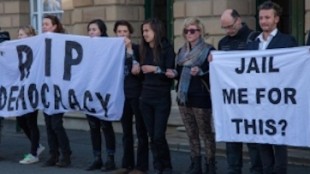Dairy Farmers & a Missing Comma: O’Connor v. Oakhurst Dairy
A missing comma caused much consternation over the meaning of a state’s employment laws at the First Circuit recently. In a March 13, 2017 decision, the appellate court worked overtime to analyze Maine’s Wage and Hour Law and a specific statutory exemption that would apply to drivers of enumerated food products. Specifically, this exemption noted that Maine’s overtime protection would not apply to workers involved in “[t]he canning, processing, preserving, freezing, drying, marketing, storing, packing for shipment or distribution of: (1) Agricultural produce; (2) Meat and fish products; and (3) Perishable foods.” 26 M.R.S.A. § 664(3)(F) (emphasis added). The emphasized portion was the core of the dispute, and the court’s reasoning provides insights for lawyers arguing about ambiguity before the First Circuit. The delivery driver plaintiffs argued that the exemption referred to the packing, either for shipment or distribution, of perishable foods. They neither packed product for shipment nor packed it for distribution. As the drivers were involved with the delivery, not the packing of these foods, they claimed they fell outside the exemption and, therefore, were allowed to collect overtime pay. The dairy farm defendants were steamed and contended in opposition that the exemption referred to two distinct activities, either [read more]










